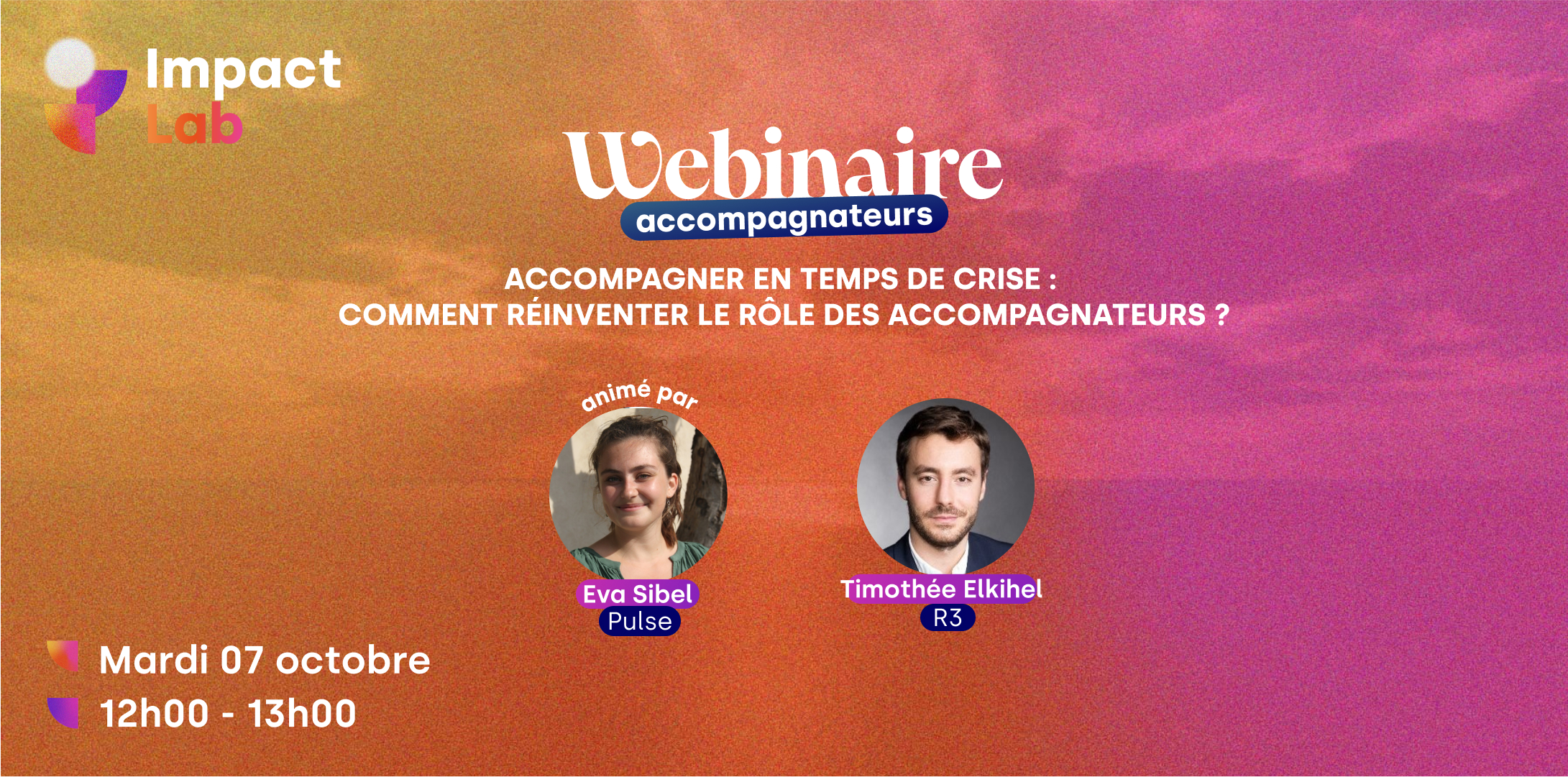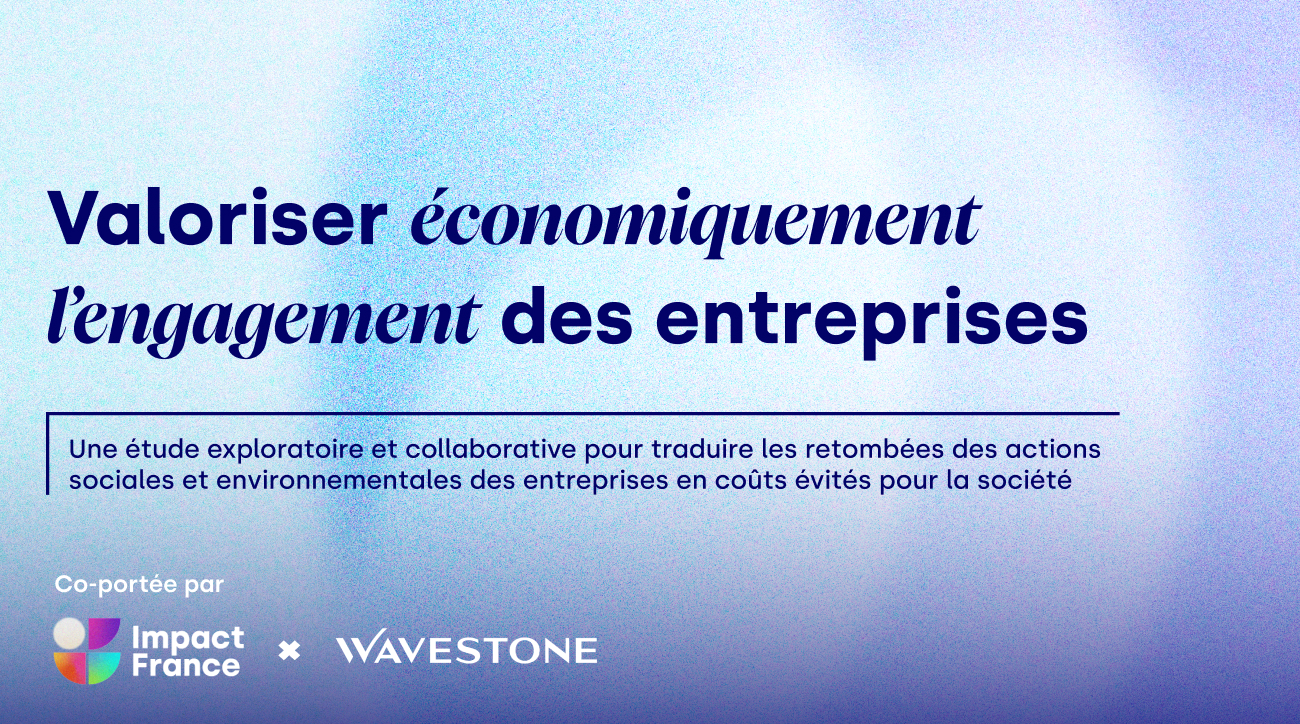Support in times of crisis: lessons from PULSE and R3 during the Impact Lab webinar


On October 7, theImpact Lab of the Mouvement Impact France brought together their supporting members and the members of theImpact Lab Academy for a webinar devoted to a central issue: how to support impact companies in an unstable economic, social and political context?
Moderated by Inès Djaoud, Project Manager at Impact Lab, the session gave the floor to Eva Sibel (PULSE ) and Timothée Elkihel (R3), who shared their experience in adapting their support, offerings and teams to the crisis.
Between political instability, regulatory uncertainty and declining public funding, support structures are having to redouble their agility. The sector is experiencing a marked slowdown: the creation of start-ups is on the decline, almost a third of employing associations have a cash flow of less than three months, and demand for CSRD support has been divided by five in 2025. Against this backdrop, maintaining solid programs while preserving a viable business model becomes a daily challenge.
The two speakers shared concrete levers for maintaining the quality of their support while adapting to the crisis:
💡 PULSE teachings:
PULSE has identified a number of levers to counter the contraction in financing and the decline in entrepreneurial morale:
⚙️R3 teachings:
Consulting firm R3, also affected by the slowdown in the CSR market, has had to adapt its offering:
The crisis is also having a profound effect on the sector's human resources. Both organizations stressed the need to take care of their teams:
For R3, as for PULSE, these HR adjustments are inseparable from collective work on the meaning and coherence of our actions.
Beyond their own structures, PULSE and R3 insist on the strength of the collective. Support structures benefit from forming consortia to share their databases, pool their expertise and co-construct common tools. These dynamics also make it possible to create peer groups, where managers can exchange ideas, support each other and break the solitude of management in times of tension.
It is in this spirit that theImpact Lab Academythe first learning community dedicated to impact coaches.
💬 Further information
➡️ Replay available to Impact France members
➡️ Find out more about theImpact Lab Academy the first learning community for coaches who integrate greater social and ecological impact into their practice.
Starts on November 13, 2025 - annual membership
